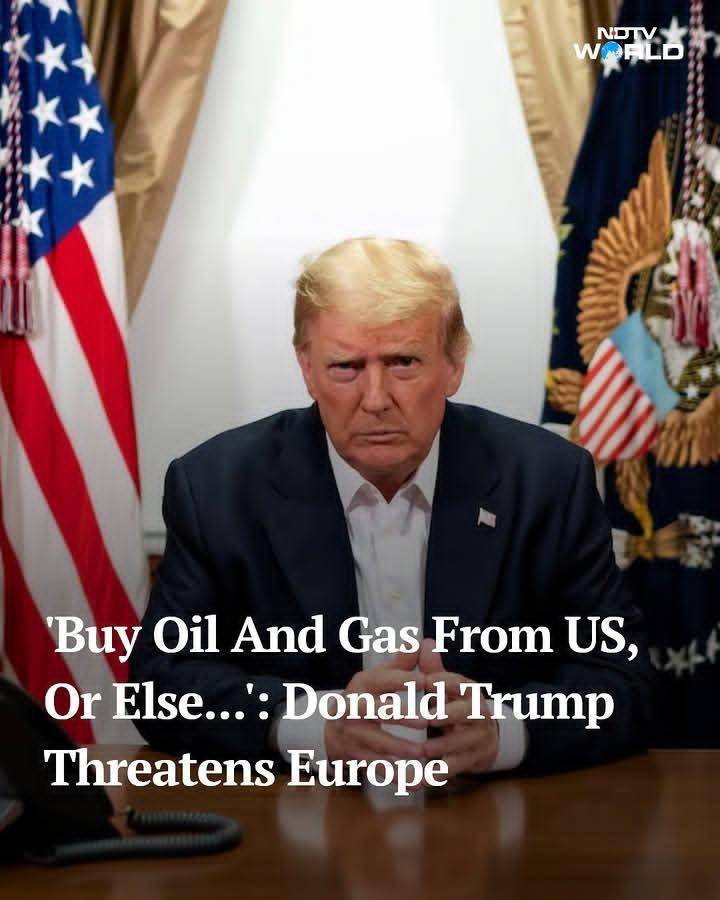A New Day, A New Threat: Donald Trump Targets the European Union.
As the world awaits Donald Trump’s upcoming presidential inauguration, the U.S.-EU trade relationship has taken a dramatic turn. In a bold and controversial move, Trump recently issued an ultimatum to the European Union: increase the purchase of American oil and gas or face heavy tariffs on European imports. This announcement has sparked global debates, with implications that could significantly reshape international trade dynamics.
The Trade Gap at the Core.
Trump’s stance stems from his dissatisfaction with the substantial trade deficit between the U.S. and the EU. In 2022, this gap reached $202.5 billion, according to official trade statistics. Describing the imbalance as “tremendous,†Trump has emphasized the need for the EU to address this disparity by purchasing U.S. energy products.
In a statement shared on his social media platform, Trump declared, “The European Union must make up their tremendous deficit with the United States by the large-scale purchase of our oil and gas. If not, TARIFFS all the way!†His direct language reflects his characteristic approach to diplomacy, often blending economic policy with hardline rhetoric.
Energy Politics and the EU
The European Union’s energy landscape has been undergoing rapid changes, particularly in light of geopolitical tensions and its shift away from dependence on Russian energy. Over the past two years, the EU has significantly increased its imports of U.S. liquefied natural gas (LNG), making the U.S. a key energy supplier. In fact, European imports of U.S. LNG have tripled since 2021.
Despite these efforts, Trump’s demands highlight a broader challenge for the EU: balancing its energy needs with geopolitical and economic pressures. As a 27-member bloc, the EU faces internal complexities, with individual nations having unique energy policies and priorities. Meeting Trump’s demands would require a unified response, which could prove difficult given the diverse interests of member states.
The Tariff Threat
Trump’s warning of tariffs adds another layer of complexity to the situation. European industries, particularly the automobile sector, could face significant repercussions if tariffs are imposed. Germany, for example, which has a strong export-driven economy, stands to lose billions in revenue should U.S. tariffs target its car exports.
The EU has expressed concerns about the potential economic fallout, with leaders like former Italian Prime Minister Enrico Letta criticizing Trump’s approach. Letta argued that energy imports and trade imbalances are separate issues that require distinct solutions. Nonetheless, the EU appears willing to engage in dialogue to avoid a full-blown trade conflict.
A High-Stakes Game
Trump’s ultimatum is consistent with his broader trade policy, which has previously targeted major trading partners like China, Mexico, and Canada. His administration’s strategy to address trade imbalances often involves aggressive measures, such as imposing tariffs or renegotiating trade agreements.
As Trump prepares to take office, his administration’s actions will undoubtedly influence the global economy. The EU’s response to these latest demands will be crucial in determining the future of U.S.-EU trade relations.
While some view Trump’s tactics as a necessary step to protect American economic interests, others see them as a threat to international cooperation. Regardless, this high-stakes negotiation underscores the evolving complexities of global trade in a rapidly changing political landscape.
In the coming months, all eyes will be on the U.S. and the EU as they navigate these challenges. Whether through compromise or confrontation, their decisions will have far-reaching consequences for the getlobal economy.




No comments yet
Be the first to share your thoughts!